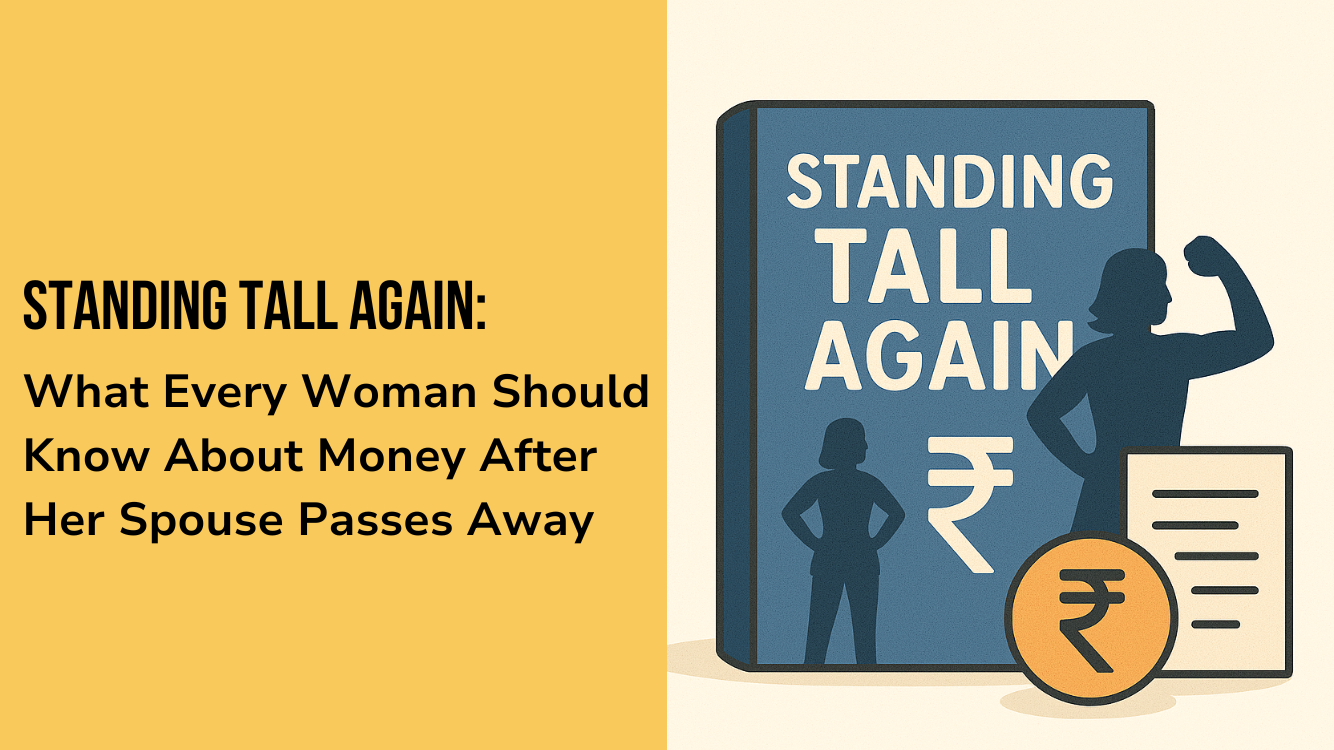Losing a spouse is one of the most painful and emotional experiences a woman can face. Amid grief, there comes an unexpected wave of responsibilities, especially financial ones & during this situation, it’s very difficult to manage everything. Many women, especially in India, are not directly involved in family finances, making the journey even harder.
But here’s the truth: every woman, regardless of age or background, has the power to take charge of her money. And the best time to start is now.
What Every Woman Should Know?
Know Where the Money Is
Understand where your family’s money is kept: bank accounts, investments, insurance policies, property papers, and loans.
You can check out this financial document checklist, which will help you understand which important financial documents you must have.
Maintain a simple record of these with your spouse or a trusted family member.
Have Joint Accounts
Having one joint bank account makes it easier to access funds in case of emergencies.
Also, you can add your name as a nominee on property and investment documents wherever possible.
Understand Insurance and Nominations
Make sure you know about life insurance policies and whether you’re the nominee or not.
Keep updated copies of the policies and know the claim process.
Understand the sum insured and the claiming process to avoid any hassle during such hard situations.
Build Your Own Emergency Fund
Even if you aren’t working, try saving a small amount regularly and building your emergency fund.
This fund can be a safety net for unexpected expenses.
Learn Basic Money Management
Know how to use net banking, UPI, and manage a simple budget. (If you are new to this)
Don’t hesitate to ask questions or take a basic financial course. That’s why Lxme is here to help you out and answer all your questions, along with helping you to educate and invest for your future goals.
Talk About a Will
Encourage your spouse and family to have a legal will. It helps avoid legal complications & ruin family relations later.
Know what assets are covered and where the will is stored.
Keep Digital and Physical Copies of Documents
Have scanned copies of key documents stored in a secure drive.
Also, maintain a physical file with labelled sections for easy access.
Include Children in Financial Discussions
Age-appropriate financial conversations with children can prepare them for the future.
Let them know where the documents are and the basic steps to take in emergencies.
Be Aware of Loan Responsibilities
You are not liable for your spouse’s debts unless you were a co-borrower or guarantor.
If a loan was in joint names, you may be responsible for repayment.
Check all loan agreements and consult a legal advisor to understand your obligations.
It’s not easy to think about such situations, but being prepared doesn’t mean being negative. It means being responsible & aware. Life is unpredictable, but with some awareness and planning, you can stand tall again, no matter what life throws at you.
Whether you are single, married, or widowed, your money matters. And you matter even more.
Start today. Learn one new thing about your money. Talk to a friend. Talk to on Lxme Community. Open that file. Ask that question.
Because you are not alone. And you are stronger than you think.
Stay financially confident. Stay empowered.
FAQs
What documents should I gather immediately after my spouse passes?
One should collect the death certificate, ID proofs (PAN and Aadhaar), marriage certificate, bank details, insurance policies, and your spouse’s will (if available). Also, gather property documents, investment records, pension or employment papers, and any loan or EMI details. These are essential for settling finances and claiming benefits.
Am I responsible for my spouse’s debts after they die?
You are not personally responsible unless you were a co-signer or joint account holder. In most cases, the debt is repaid from your spouse’s estate. Always check loan documents and consult a legal expert if needed.
Further read:












